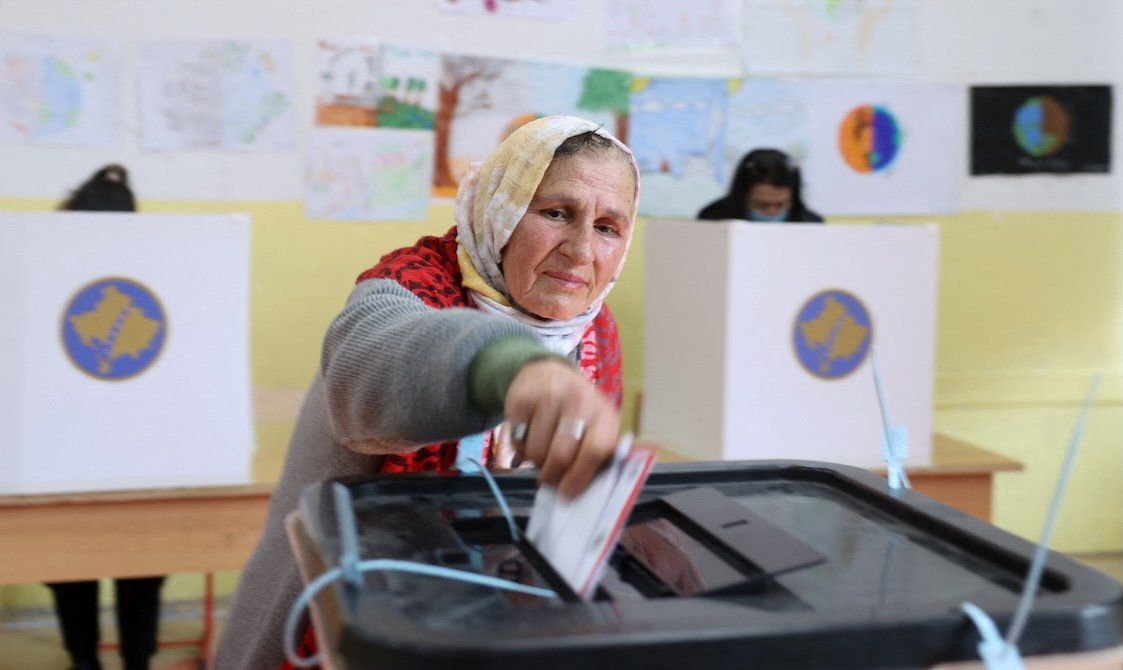The Republic of Kosovo held parliamentary elections on Sunday, and with 88% of the votes counted, Prime Minister Albin Kurti's party, Vetëvendosje (Self-Determination Movement), is ahead with 41% of the vote – a drop from the 50% Kurti got in 2021. This means he will likely need to form a coalition to stay in power.
Who could Kurti team up with? The Democratic Party of Kosovo, or PDK, and the Democratic League of Kosovo, LDK, are projected to receive 22% and 18% respectively, while the Alliance for the Future of Kosovo, the AAK, got 8%.
It is possible that the opposition parties could form a government on their own. Former Prime Minister and AAK leader Ramush Haradinaj said he was “looking forward to cooperating on the creation of an opposition government” to keep Kurti out of power, and Kurti himself has said he would not engage with the opposition parties. But Kurti seemed to have changed his tune late Sunday, declaring victory and vowing to govern. “We are the first party, the winning party that will create the next government,” he said. “We will continue to finish the work that we have started.”
What’s at stake? Under Kurti’s leadership, tensions escalated with both neighboring Serbia and Kosovo’s Serb minority. His left-leaning government banned the use of the Serbian dinar and shut post offices used by Serbs, drawing criticism from Western governments and leading the EU to suspend aid funding. In contrast, both the LDK and PDK are center-right and pro-Western, with the PDK campaigning on rejoining NATO and restoring relations with the US.
Should Kurti form the next government and continue with his anti-Serb stance, Kosovo risks becoming even more isolated. But should the opposition take power, it could redefine Kosovo’s relations with the US and the EU – which it wants to join – and potentially relaunch peace talks with Serbia.
